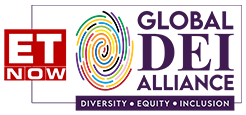DISCOVER DEI
WHAT IS DIVERSITY, EQUITY AND INCLUSION
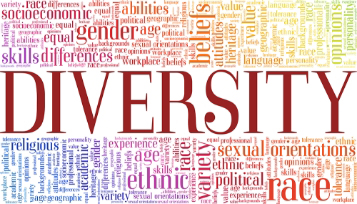
Diversity, equity and inclusion (DEI) is a term used to describe policies and programs that promote the representation and participation of different groups of individuals, including people of different ages, races and ethnicities, abilities and disabilities, genders, religions, cultures and sexual orientations. This also covers people with diverse backgrounds, experiences, skills and expertise.
BREAKING DOWN DIVERSITY, EQUITY & INCLUSION
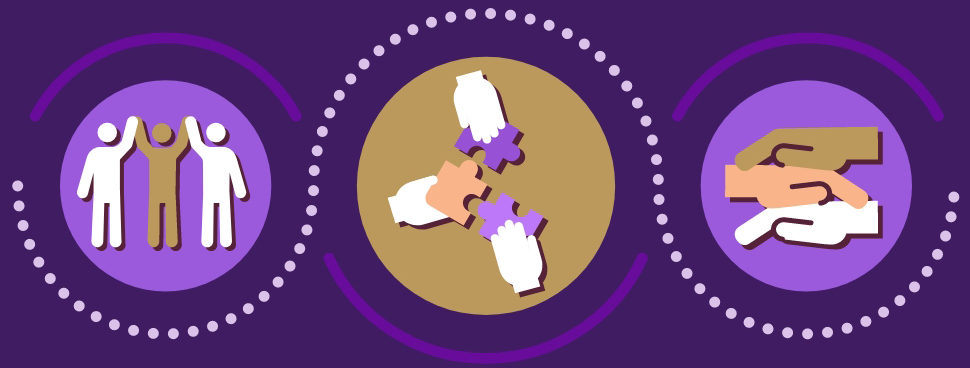
Involves all the ways that people are different, including the different characteristics that make one group or individual different from another.
Aims to ensure the fair treatment, access, equality of opportunity and advancement for everyone while also attempting to identify and remove the barriers that have prevented some groups from fully participating.
Builds a culture where everyone feels welcome by actively inviting every person or every group to contribute and participate.
DIVERSITY
EQUITY
INCLUSION
BREAKING DOWN DIVERSITY, EQUITY & INCLUSION

Involves all the ways that people are different, including the different characteristics that make one group or individual different from another.
Aims to ensure the fair treatment, access, equality of opportunity and advancement for everyone while also attempting to identify and remove the barriers that have prevented some groups from fully participating.
Builds a culture where everyone feels welcome by actively inviting every person or every group to contribute and participate.
DIVERSITY
EQUITY
INCLUSION
BREAKING DOWN DIVERSITY, EQUITY & INCLUSION
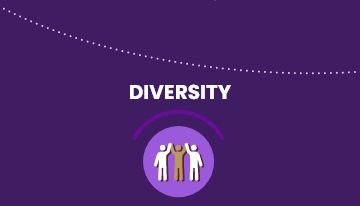
Involves all the ways that people are different, including the different characteristics that make one group or individual different from another.
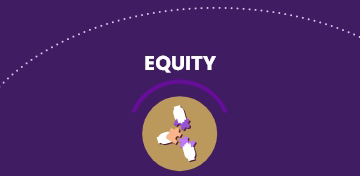
Aims to ensure the fair treatment, access, equality of opportunity and advancement for everyone while also attempting to identify and remove the barriers that have prevented some groups from fully participating.
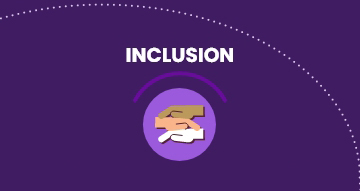
Builds a culture where everyone feels welcome by actively inviting every person or every group to contribute and participate.
WHY DEI IS IMPORTANT IN THE 21ST CENTURY

Numerous studies have shown the benefits of more Diverse, Equitable, and Inclusive workplaces. Here are some of the key reasons:
Research has shown that companies with more diverse teams tend to be more profitable. This is because diverse teams are better able to understand and respond to the needs of a diverse customer base. Gender diverse executive teams are 21% more likely to outperform their national industry median. While Ethnic/culturally diverse teams are 33% more likely to outperform their peers on profitability.
Today customers want to be associated to and support brands / products that resonate with their core beliefs. A company that has a strong commitment to DEI might be more likely to attract customers who value it. Organizations that prioritize DEI are seen as more socially responsible and attractive to customers, employees, and investors. Additionally, investors may see a commitment to DEI as a sign that a company is well-managed and has a strong sense of social responsibility.
A diverse and inclusive workplace is central to a company’s ability to attract, develop, and retain the talent it needs to compete in the marketplace. This is increasingly important when it comes to Gen Y & Z, who will be the torchbearers of tomorrow and a large part of the employable workforce.
A diverse team brings a range of different perspectives and experiences, which can lead to more creative solutions and innovative ideas. A company that has employees from different cultural backgrounds might be better able to understand and cater to the needs of a diverse customer base. This could lead to the development of new products or services that meet the needs of previously underserved markets. Problem-solving: Diverse teams can bring a wider range of skills and expertise to the table, leading to more effective problem-solving. Teams that includes individuals with different educational backgrounds and experiences might be better able to analyze and solve complex problems. This could lead to more effective decision-making and better outcomes for the organization.
Diverse teams can bring a wider range of skills and expertise to the table, leading to more effective problem-solving. Teams that includes individuals with different educational backgrounds and experiences might be better able to analyze and solve complex problems. This could lead to more effective decision-making and better outcomes for the organization.
THE REALITY OF DEI IN INDIA INC.
According to a survey by the Confederation of Indian Industry, only 4% of senior management positions in Indian companies are held by women.
Another survey by the Confederation of Indian Industry found that 56% of Indian organizations have policies in place to promote diversity and inclusion, but only 42% of these organizations have a dedicated diversity and inclusion team.
According to a report by the Kotak Institutional Equities research team, the representation of women on corporate boards in India is still low, at around 14%.
According to a report by the Indian Institute of Management Ahmedabad, the representation of people from marginalized communities, such as Scheduled Castes and Scheduled Tribes, in the workforce is lower than that of other groups.
According to a report by the United Nations Development Programme, India has made progress in increasing the representation of women in the workforce, but still has a long way to go to achieve gender parity.
According to a report by the Society for Human Resource Management, 63% of organizations in India have formal programs in place to promote diversity and inclusion, and 45% have metrics in place to measure the effectiveness of these programs.
The same report by the Society for Human Resource Management, also mentions that only 37% of Indian organizations provide equal opportunities for career advancement to all employees, regardless of their gender or other characteristics.
According to a report by Mercer, only 27% of Indian organizations have a formal diversity and inclusion program in place.
A report by the India Development Foundation found that women are underrepresented in the Indian workforce, with only 27% of women participating in the labor force compared to 73% of men.
A survey by the National Human Rights Commission found that 70% of women in India have experienced sexual harassment at work, highlighting the need for increased focus on DEI in the Indian workforce.
According to a survey by the All India Council for Technical Education, only 22% of engineering colleges in India have a dedicated cell or committee to promote diversity and inclusion.
A report by the India Human Rights Commission found that 80% of Indian organizations do not have policies in place to protect LGBTQ+ employees from discrimination.
A survey by the India Development Foundation found that 65% of LGBTQ+ individuals in India reported facing discrimination in the workplace because of their sexual orientation or gender identity.
HOW TO FOSTER AN ENVIRONMENT OF CHANGE WITH DEI
Fostering a diverse and inclusive culture requires effort and commitment from all levels of an organization. Here are some ways to foster a diverse and inclusive culture:
Diversify the workforce
Recruit from a wide range of backgrounds and consider implementing diversity goals in your hiring process.
Create a welcoming environment
Ensure that all employees feel welcomed and valued by promoting inclusive language and behaviors, and creating opportunities for employees to connect and interact with one another.
Provide training and education
Provide training and education on diversity, equity, and inclusion to all employees, including leadership.
Foster open communication
Encourage open communication and actively listen to employees’ feedback and concerns.
Create opportunities for employee involvement
Encourage employees to participate in diversity and inclusion initiatives and provide opportunities for them to lead and contribute to these efforts.
Review and revise policies and practices
Regularly review and revise policies and practices to ensure that they are inclusive and do not unintentionally discriminate against any group.
Create opportunities for networking and professional development
Provide opportunities for employees to network and develop professionally, regardless of their background or identity.
Celebrate diversity
Celebrate diversity and promote awareness of different cultures and perspectives through events, programs, and initiatives.
